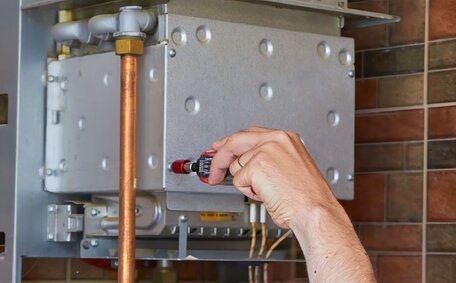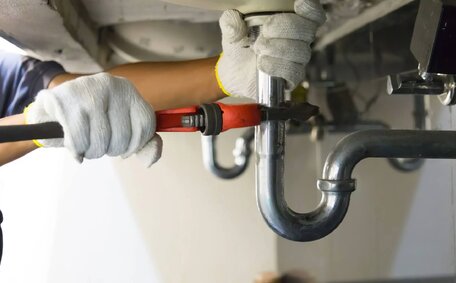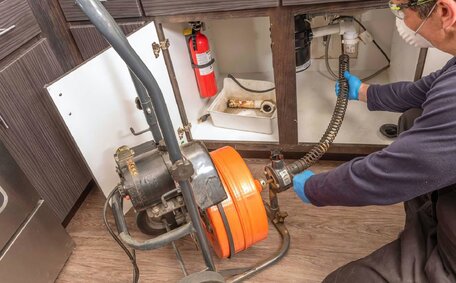Is a Clogged Dishwasher Really an Emergency?
When its time to address a dishwasher that doesnt drain properly or water is backing up, it can seem like an urgent plumbing issue. However, considering what do when faced with a dishwasher clog often doesn’t require emergency attention. Assessing key factors helps determine the severity of the blockage.
Here in Dulwich Hill, a clogged dishwasher may flood your kitchen floor, causing issues within your home if not addressed promptly. But calling out an emergency plumber isn’t always necessary. Its best to try DIY troubleshooting tips first, as they could save you money, like using a pipe cleaner to clear debris from the drain hose.
As your local plumbing experts, we want to empower homeowners to turn off the circuit breaker for the dishwasher and handle minor clogs themselves. We’re also here for professional assistance when you need to seek help if problems persist or you’re unsure of the cause. Evaluating signs dishwasher issues present, like dirty water overflowing or foul odours helps gauge the appropriate response.
By covering common reasons for clogged dishwashers, self-fixes to attempt, preventative measures, and scenarios needing our expertise, we hope to help you address dishwasher drainage problems. Don’t hesitate to email or call us if you have any other questions!
Common Signs Your Dishwasher Is Clogged
Several clear indicators can signal a clogged dishwasher:
- Loud gurgling sounds during the wash cycle as water struggles to make its way through, indicating a possibly blocked dishwasher
- Dishes remaining dirty, with food particles after a full cycle
- Water bottom pooling within the dishwasher
- Foul or sewage-like odours coming from the dishwasher
- dishwasher issues that dishwasher can cause dirty water in your kitchen to overflow
With over 75% of Australian households owning a dishwasher, this appliance is one most likely to suffer from clogs due to food debris, grease buildup, and more. While some causes, like significant build up, may puzzle homeowners as to why water isn’t draining, try basic troubleshooting first:
- Thoroughly clean the dishwasher filter basket and drain hose using a pipe cleaner
- Run hot water from your water supply through the drain line to loosen debris
- Use a vinegar baking soda mix to break up grease clogs
If water continues backing up or you notice flooding, which could result in severe property damage, call us to prevent severe property damage. Our team can use their expertise to help unclog your dishwasher or assess any underlying issues.
Common Causes of Dishwasher Clogs
Several common culprits contribute to clogged dishwashers in Dulwich Hill homes:
- Food debris - things like egg shells, citrus peels, and tea leaves can accumulate in the filter and drain hose.
- Grease buildup - Fatty deposits from food can coat the interior and clog your dishwasher’s water flow.
- Hard water can adversely affect water pressure and lead to limescale buildup with heavy mineral deposits over time.
- Broken parts - Issues with the pump, drain hose, or water inlet valve can cause debris to back up into the sewer line.
Food is the primary source of dishwasher clogs; you can get your filter and hoses checked. Our hard water, while normally harmless, exacerbates buildup when combined with scraps on dishes. Over time, chunks of debris amass, and the problem could escalate to severely restrict water drainage.
Regularly scrubbing your dishes under running water before loading helps clear out leftover particles, rather than contributing to clogs. Additionally, run the rinse only cycle weekly to flush any loose sink waste. We also advise homeowners to Occasionally clean out dishwasher filter basket and inspect key internal parts to identify wear.
Its important to prevent clogs long-term, and we offer water softening solutions to counter hard water deposits. An accredited plumber can help by replacing any damaged dishwasher parts prone to allowing backups.
Troubleshooting a Clogged Dishwasher
If your dishwasher isnt draining, there are several troubleshooting steps you can try before calling a professional:
1. Check the air gap
Clear any debris from your sink air gap attached to your sink drain line. Food particles sometimes get trapped here.
2. Clean the filter basket
Remove the filter at the bottom of your dishwasher tub and rinse it thoroughly to remove any accumulated food debris.
3. Clean the drain hose
Efficiently use a pipe cleaner to dislodge debris heading down your drain hose, which connects your dishwasher to the sink drain.
4. Run the garbage disposal
Make sure to run your garbage disposal before starting your dishwasher to clear any debris in your kitchen sink’s drain pipes.
5. Use baking soda and vinegar
Pour 1 cup soda vinegar solution down your drain to get rid of blockages and let sit for 5 minutes before running the rinse cycle. Repeat if needed.
If DIY efforts aren’t working, call Dulwich Hill’s most trusted plumbing company on 1300 349 338. Call a plumber from our team of professionals to have your dishwasher drain safely unclogged and to review other potential issues.
When to call a professional plumber
In some cases, calling a professional plumber is advised if DIY efforts to unclog your dishwasher are unsuccessful or the clog persists. The apparent signs your appliance is clogged and requires expert help include:
- Standing water or foul odours continue after attempts to clear debris from the drain line, filter basket, and internal components
- Water backing up is overflowing from your dishwasher into your kitchen
- Loud gurgling that signifies your dishwasher might be facing a clogged drain needing attention
- You notice flooding underneath the dishwasher itself
- There are visible cracks or damage to key internal parts like the pump or drainage hoses
Our team of licenced Dulwich Hill plumbers have the tools and know-how to quickly clear even severe clogs. We can also identify and repair any mechanical damage contributing to your plumbing system backups. Preventing contamination of your property is paramount.
For prompt assistance unclogging your dishwasher - day or night - contact Dulwich Hill Plumbing on 1300 349 338. Getting ahead of problems minimises flooding risks and long-term appliance damage.
Preventing Future Dishwasher Clogs
Preventing recurring clogs in your dishwasher involves keeping the appliance and its connections as gunk and debris-free as possible.
We recommend the following maintenance tips based on our extensive plumbing experience:
- Clean the filter drain monthly using hot, soapy water. Scrub away any large food scraps trapped in it.
- Run an empty dishwasher cycle monthly using vinegar to dissolve grease and limescale buildup.
- Frequently wipe down the door gasket for mould and mildew prevention.
- You can only put dishwasher-safe items in the appliance to avoid debris accumulations internally.
- Scrape off excess solids from dishware before loading into the racks.
- Ensure the drain hose has no kinks or blockages from the dishwasher to the kitchen sink.
Inside your dishwasher, regularly check key problem areas:
- The filter basket underneath the bottom spray arm
- The circular sink air gap attached to your sink piping
- The drain hose running from the dishwasher to your sink’s garbage disposal
Catching any clogs early will make your appliance maintenance much easier over time. We’re always here to professionally unclog any persistent blockages too.
Regular maintenance and cleaning
To help prevent future clogs, it’s important to regularly maintain and clean dishwasher components. Here are some suggested steps:
Clean the Filter Monthly
Remove the filter at the bottom of the dishwasher tub and rinse it thoroughly each month to remove any accumulated debris.
Wipe Down Interior Surfaces
Use a soft cloth with warm soapy water to wipe down the interior surfaces, including the door gasket. This helps remove grease and prevents mould/mildew buildup.
Use Vinegar Monthly
When dishwasher maintenance is due, run an empty cycle with 2 cups of vinegar to tackle grease and limescale buildup. The acidity helps keep drains clear.
Check Key Problem Areas
Regularly inspect the drain filter basket, check for air gaps, and examine the drain hose for any visible debris to effectively prevent clogs. Taking a proactive approach helps avoid major issues.
Establishing disciplined cleaning routines for your dishwasher takes some diligence, but saves time and money in the long run by preventing costly clogs. We’re always here to professionally assist too if problems arise.
Loading and using dishwasher properly
To prevent future clogs, its crucial to load and operate your dishwasher correctly. Improper usage often contributes to drainage issues over time.
Scrape Off Food Debris
Before placing items in your racks, make sure to scrape off excess solids into the garbage. Particles left on dishware fall off during washing cycles and accumulate internally.
Only Load Dishwasher-Safe Items
Dont use non-dishwasher safe plastics to avoid creating blockages from materials that aren’t meant for the appliance. Don’t use non-dishwasher safe items which might melt; these can break apart and clog drainage pipes. Stick to dishware, glasses, pots, pans and utensils rated as dishwasher-safe.
Empty Liquid Soap Dispenser
If using liquid dish soap instead of detergent packs, monitor the dispenser and refill before its entirely empty. Running a cycle without soap is one of the most common mistakes that leads to poor cleaning results.
Check Interior After Cycles
Inspect inside your dishwasher tub with your hands following wash cycles for any accumulated debris you can clean out. Finding issues early prevents major clogs from forming over time.
Establishing good loading and usage habits keeps your dishwasher functioning smoothly long-term. We’re always available if you need professional assistance with your dishwasher draining properly again.






